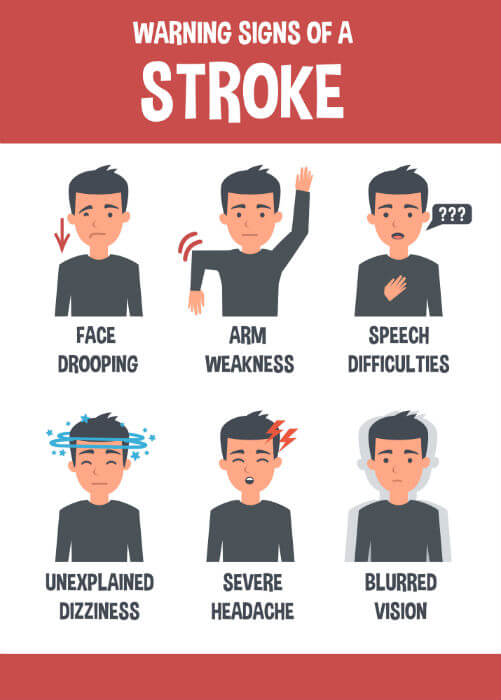Over $600 million in
verdicts & settlements
for our clients.
$185,000,000
Verdict
ERNST & YOUNG
Accouting Malpractice
$150,000,000
Verdict
EXXON MOBIL
Gas Leak
$25,000,000
Verdict
BELL ATLANTIC
Business Fraud
$11,800,000
Verdict
PERSONAL INJURY
Learning to recognize the earliest signs of a stroke will increase the chances of recovery for you or a loved one. During a stroke, parts of the brain will not be receiving sufficient blood flow and oxygen. These conditions cause brains cells to die and can lead to permanent paralysis, challenges with eating, talking and/or swallowing, emotional troubles, pain and more. When emergency medical treatment is quickly initiated, the chances of a full or partial recovery significantly increase. Even if symptoms of a stroke seem to disappear, medical attention should be promptly sought to minimize the risk of additional episodes.

What Are the Earliest Signs of a Stroke?
A person who is having a stroke will be experiencing reduced brain function and parts of their body will begin to shut down. Any of the following symptoms warrants a call for an ambulance:
- A drooping smile or numbness on one side of the face. Loss of muscle coordination and/or sensation can result from restricted blood flow to the brain.
- An inability to raise both arms above the head. Partial paralysis on one side of the body can make it difficult or impossible to evenly raise both arms above one’s head during a stroke.
- Difficulty walking. One leg may be numb or tingling, or the person may experience dizziness and/or loss of coordination.
- Headaches or challenges with vision. A sudden onset headache and trouble seeing through one eye (or double vision) may occur during a stroke.
- Mental confusion and trouble speaking. Slurred speech, mental confusion or an ability to talk is reason for concern.
It helps to remember the acronym “FAST”. Is the FACE or smile drooping? Can both ARMS be raised above one’s head? Is there any trouble with SPEECH? If the answer to any of these questions is yes, it’s TIME to call 911! Minutes count, as brain cells may be dying due to oxygen deprivation. Don’t wait, even if symptoms seem to have gone away.
Early Medical Treatment Increases the Chances of Recovery
Once in the care of medical professionals, many stroke victims will receive a thrombolytic, or clot busting drug, to break up any blood clots that may be responsible for the reduced blood flow to the brain. These medications have been proven to increase the chances of recovery for people who have experienced the most common type of stroke, known as an ischemic stroke. Ischemic strokes are caused by a clog in an artery leading to the brain or when a blood clot or particle of debris from another blood vessel gets carried to the narrower vessels in the brain where it may then become lodged.
In the case of hemorrhagic stroke, blood escapes from a vessel in the brain, causing damage to nearby tissues. Cells that are downstream of the leak will also not be receiving an adequate amount of blood flow. While thrombolytic drugs are ineffective in these cases, an endovascular procedure (where a long tube is inserted through a major artery in the leg and guided to the damaged vessel) may be used to stop additional blood from escaping into the brain. Emergency surgery may also be performed to repair damaged blood vessels, if needed.
Don’t Ignore Signs of Mini-Stroke
Some people experience early signs of a stroke that seem to go away after a few minutes. Often, this is the result of a transient ischemic attack (TIA), or mini-stroke. Although blood flow returns to normal shortly after experiencing a TIA, the risk of having a full blown stroke increases dramatically after the attack. Without proper testing, there is no way to know whether brain damage has or is still occurring, even if symptoms disappear. Prompt medical treatment will significantly increase the chances of recovery, so learn the earliest symptoms and call 911 if you observe any signs of a stroke.
Who Can You Trust with Your Case?
Have you or a loved one been injured due to negligence? We want to help. Don’t hesitate to contact us if you believe you have a case; time is an important factor. Interested in learning more? Get in touch with us so we can better evaluate and serve your needs in getting the justice your loved one deserves. You may very well be entitled to compensation.

Call For a Free Consultation









